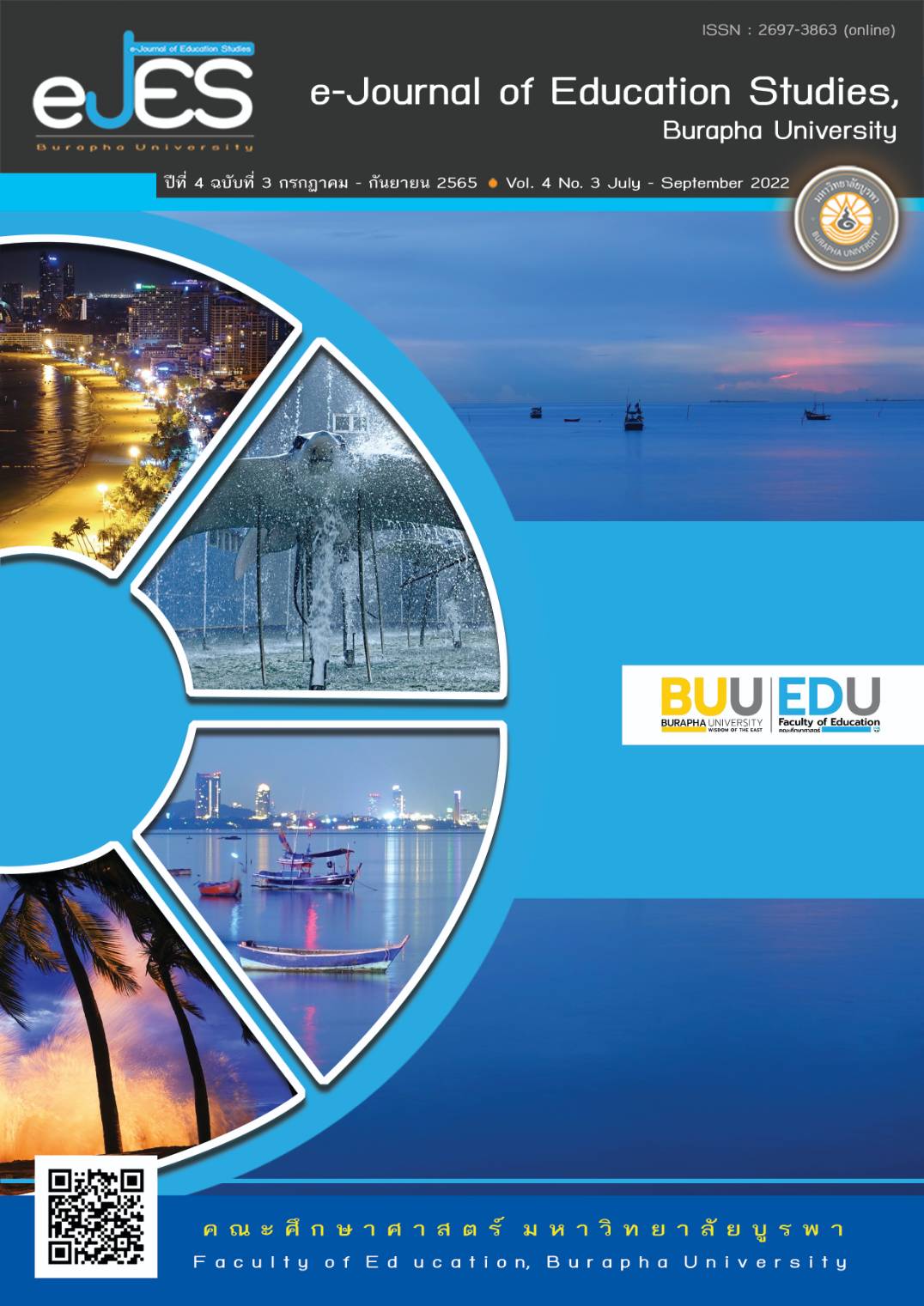A Tracer Study of Graduates of the Bachelor of Education in Early Childhood Education (B.Ed. in ECE) Programme in Dongkhamxang Teacher Training College, Academic Year of 2019-2020
Main Article Content
บทคัดย่อ
The purpose of this study were: 1) to assess the graduates’ acquired and developed skills and competencies obtained from the B.Ed. in ECE programme; 2) to explore the employment situation of the graduates of the programme; and 3) to evaluate employers’ satisfaction regarding the graduates’ skills and competencies obtained from the programme. The sample size covers 108 graduates of the B.Ed. in ECE programme, academic year 2019-2020 and their fifty-nine employers. Data was collected through two sets of online questionnaires: 1) open-ended and close-ended questions for the graduates, and 2) open-ended and close-ended questions for the employers. The collected data was analysed to find the frequency, percentage, mean (), standard deviation (
) and correlation value. The study found that the graduates perceived that the skills and competencies they acquired from the programme and the skills and abilities required at work are at the high level. The employed graduates rated the skills and competencies which the employers require, such as the code of professional ethics for teachers and love towards the teaching profession and children, at the very high level; and the satisfaction with the learning facilities and the programme at the high level. The employers’ satisfaction with the graduates’ skills and competencies is at the high level (
= 4.31,
= 0.49). Particularly, their code of professional ethics for teachers and love towards the teaching profession and children was rated at the very high level (
= 4.51,
= 0.53). The lowest rating at the high level (
= 3.97,
= 0.71) is their knowledge and capacities to create knowledge through action research.
Article Details
เอกสารอ้างอิง
Alebiosu, A.A. (2005). Curriculum innovation: Challenges for Nigerian education. In S.OOriaifo (eds) curriculum Issues in contemporary education. Book in Honour of Prof. (Mrs.) Ebele J. Maduewesi. Benin: Da-Sylva Influence
De Ocampo, M.B., Bagano, A. J., & Tan, A. (2012). Culture of entrepreneur-ship versus employment. 2012 Fifth Taiwan-Philippines Academic Conference Digital Humanities and Cultural Studies. Aletheia University, New Taipei City, Taiwan.
Department of Teacher Education. (2012). The Early Childhood Teacher Education Curriculum. Lao PDR: Ministry of Education and Sports.
Department of Teacher Education. (2019). The Early Childhood Teacher Education Curriculum, Revised 2019. Lao PDR: Ministry of Education and Sports.
Rogan, M., & Reynolds, J. (2016). Schooling inequality, higher education and the labor market: Evidence from a graduate tracer study in the Eastern Cape,South Africa. Development Southern Africa, 33(3), 343-360.
Schomburg, H. (2003). Handbook for Graduate Tracer Studies. Kassel: University of Kassel, Centre for Research on Higher Education and Work.
Taba, Hilda. (1962). Curriculum development: theory and practice. New York : Harcourt, Brace & World.



